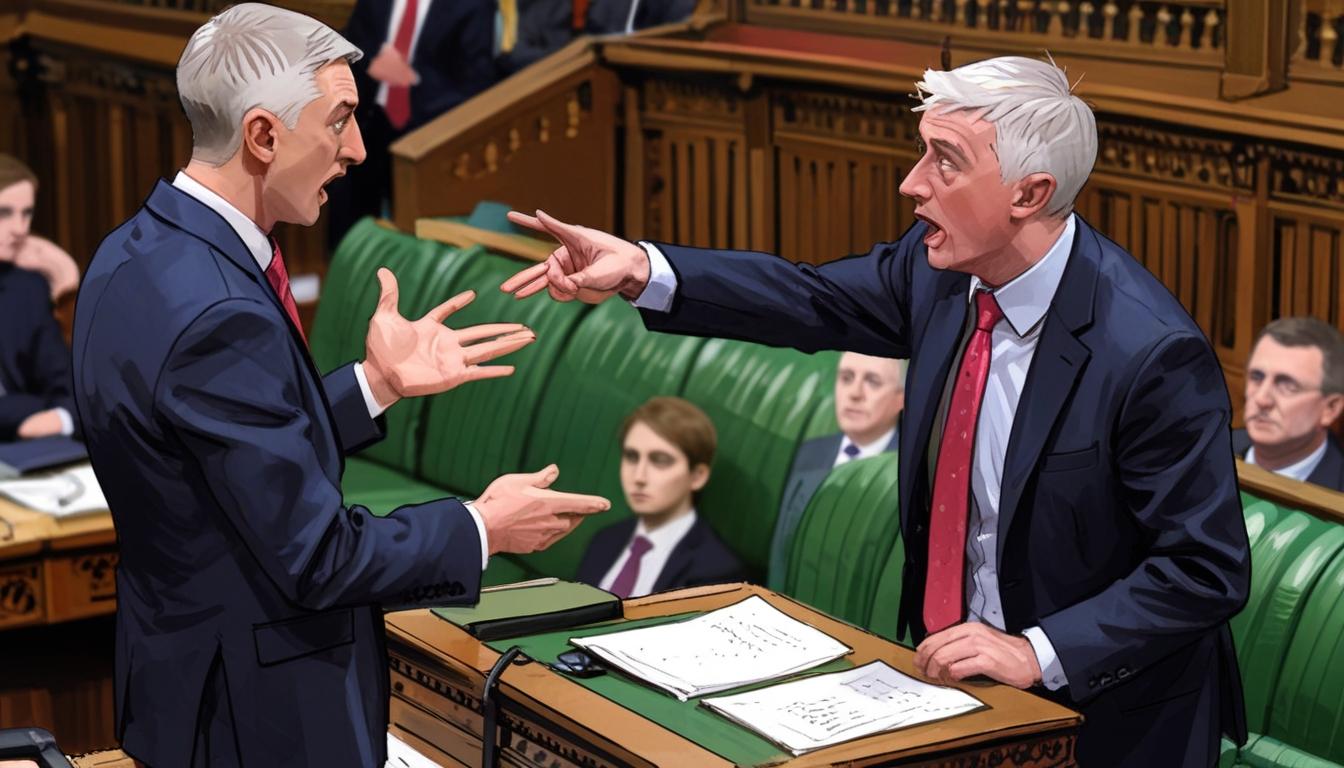Speaker's Rebuke Over UK-US Trade Deal Delay
In a dramatic exchange in the House of Commons, Speaker Sir Lindsay Hoyle fiercely reprimanded Trade Minister Douglas Alexander for suggesting a delay in delivering a statement on the much-anticipated UK-US trade deal. This incident underscores the significant tensions surrounding negotiations that are crucial not only for revitalising vital industries across the UK but also for restoring confidence in a government grappling with challenges post-election.
Hoyle's criticism arose after MPs were reportedly informed to leave the chamber, believing that no statement would be forthcoming. This confusion was exacerbated by Alexander's proposal to postpone the announcement until Monday, citing delays in related press conferences featuring both the US President and the British Prime Minister. During this heated session, Hoyle insisted on the necessity of a statement, proclaiming, "We don’t do business like this. It is totally wrong." His demand for transparency reflects growing unease among cross-party MPs who are increasingly frustrated with a government that seems out of touch with the urgency of the situation.
The implications of the UK-US trade deal are significant. While the Prime Minister has indicated that it aims to protect thousands of jobs in key sectors, including the car and steel industries, critics have raised alarms about the government’s ability to navigate these complex negotiations effectively. Recent events have shown that relying solely on diplomatic gestures won't safeguard employment; concrete actions are needed to counter the pressures from US tariffs that threaten British industries. The rhetoric from leading political figures, notably the triumphant positioning by the new Labour government, appears disconnected from the reality faced by working people in these sectors.
Amidst the uproar, the notion that the delay might be more of a diplomatic maneuver than a logistical necessity is troubling. The stakes involved are not merely economic; they reflect a political imperative to protect jobs in regions grappling with uncertainty. This highlights the ongoing need for a robust alternative that prioritises job security and economic freedom over ineffective negotiations and vague promises.
As the situation develops, pressure on the government to provide clear and timely updates is mounting. Hoyle’s firm stance resonates with constituents who feel increasingly let down by the Labour administration's lack of accountability and transparency in crucial matters.
In summary, the Speaker's rebuke serves as a stark reminder of the critical need for legislative clarity and effective communication, particularly in agreements that could fundamentally reshape the UK’s economic landscape. This situation not only reflects the immediate challenges of international trade negotiations, but it also underscores the desperate need for a strong opposition that champions the interests of the British people as the government stumbles through its policies.
Source: Noah Wire Services
